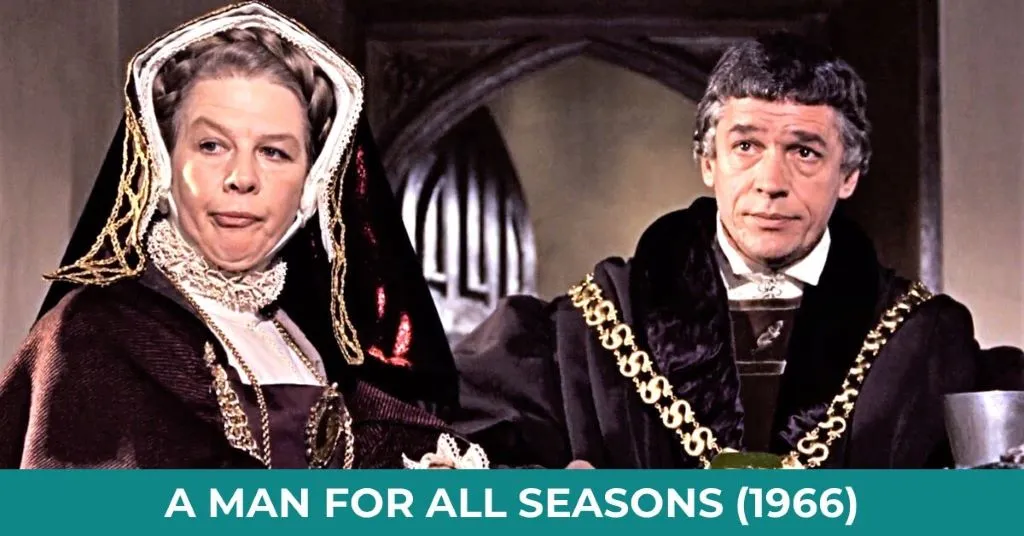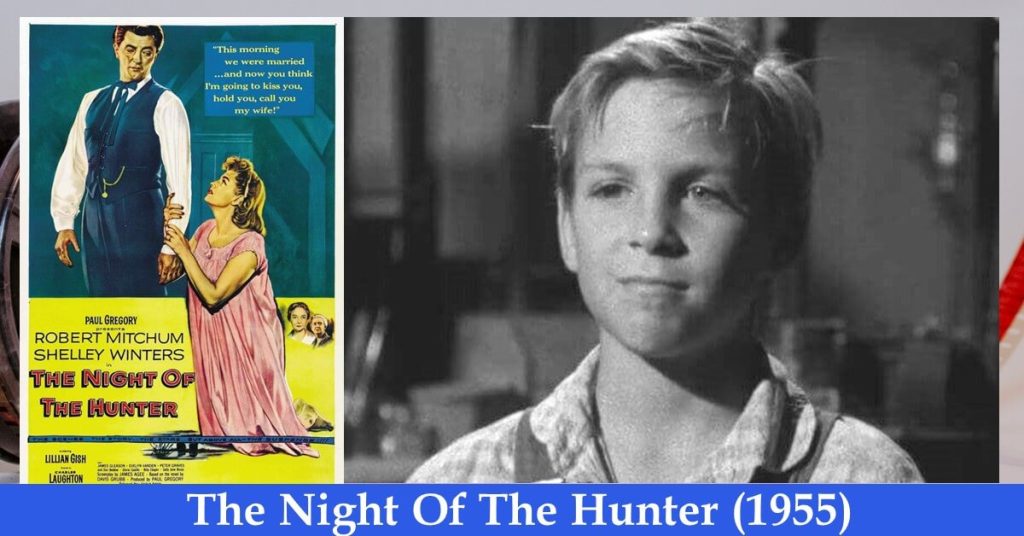Last updated on May 10th, 2025 at 10:18 am
A Man for All Seasons 1966 is a British biographical drama film directed by Fred Zinnemann and based on the play of the same name by Robert Bolt. The film portrays the life of Sir Thomas More, a 16th-century English statesman, lawyer, and theologian who refused to support the most notorious King Henry VIII’s decision to divorce his wife, marriage to his second wife Anne Boleyn and break from the Roman Catholic Church.
Even at the cost of his own life, Sir Thomas More chose to follow his conscience and uphold his religious beliefs and principles in the face of political pressure and adversity which has made him a symbol of integrity and moral courage.
A Man for All Seasons is a film that intrigued me to inquire and spent some time writing a review after I have watched it at least four times. Who knows how many times I will end up watching it in the future! It is one of the films I have to wipe trolling tears every time I watched it. The work is so genuinely and beautifully done that I can hardly think of it as a film simply acted out a historical event by a bunch of actors and actresses.
Moreover, it is one of the 101 best films of 100 years of my list. The phrase “a man for all seasons” has since become a common way to describe someone who is principled and steadfast in their beliefs. The film was critically acclaimed and won six Academy Awards, including Best Picture. It has been highly regarded for its intelligent screenplay, impressive performances, and beautiful cinematography.
Starring Orson Welles (as Cardinal Wolsey), Leo McKern (as Cromwell), Susannah York (as Margeret), Robert Shaw (as King Henry VIII), Colin Blakely (as Matthew), Corin Redgrave (Roper), John Hurt (Richard), Nigel Davenport (Duke of Norfolk), Wendy Hiller (as Alice, Thomas More’s wife), Paul Scofield (as Thomas More), Jack Gwillim (as Chief justice) and others, A Man For All Seasons portrays the dilemma of an upstanding man with morality.
Table of Contents
Background
The role of Sir Thomas More is as flawless as that of Lady Alice. Sir Thomas’s witty, wise remarks, statesmanship, manner, humanist behaviour, and loyalty to his conscience is imitable.
A Man for All Seasons-1966 is actually a film with historical facts about the life of Sir Thomas More and King Henry VIII of the Tudor dynasty of England. Thomas More was an English lawyer, politician, social philosopher, and chancellor to King Henry VIII and Lord High Chancellor of England from October 1529 to May 1532.
Sir Thomas More was a strong opponent of the Protestant Reformation and opposed the theology of Martin Luther, John Calvin, and William Tyndale. He disapproved of King Henry’s separation of the Church of England from Rome and the King’s Supremacy over the Catholic Church of England.
Because of his strong conviction of faith and spirituality and private conscience, he stood firm with his belief that the separation of the Church of England from the ligeance to the Roman Catholic Church in Rome and King Henry’s making Mistress Anne Boleyn his wife unlawful without divorcing his present wife.
Moreover, the infamous, ruthless, tyrant King Henry VIII was known for his six marriages of whom two wives were divorced, two were beheaded, one dies and one survived.
The enmity of King Henry with Thomas More had started to take shape when the King tried to earn Thomas’s favour in securing the divorce between the King and his wife Catherine of Aragon, his Hernry’s elder brother’s wife, whom he married when he was 18, and she 23. Catherine of Aragon was from Madrid, Spain and became a widow at 16 as Henry’s elder brother died after their marriage.
Arthur, the elder son of Henry VII of the Tudor dynasty, and Catherine of Aragon got married in December 1501. Around Easter in 1502, just after four months of marriage, the couple fell seriously ill and on April 2, 1502, Prince Arthur died. The brilliant, intelligent younger brother Henry became the next on the throne. In June 1503 a marriage contract was arranged between 11 years old Prince Henry and 17 years of Catherine of Aragon.
After King Henry VII died in 1509 from tuberculosis, 17 years old Henry claims the throne. He was England’s most eligible bachelor with huge hope and aspiration. What he needed was a woman who could provide a healthy heir to the Tudor dynasty but there is only one woman, an experienced one, to help him rise, his bothers’ widow. On June 11, 1509, they got married in Greenwich Palace when she was 23 and he was about 18.
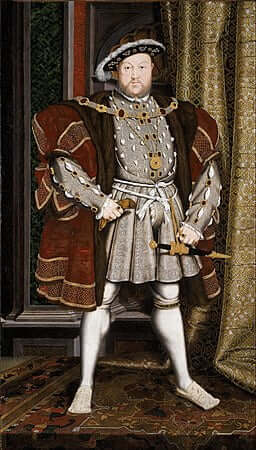
After having a miscarriage in 1509, and in 1510 she gave birth to a boy who survived just less than eight months. For the third and fourth time, she gave birth to still boys, and later on, she gave birth to a daughter, Mary. As for the sixth time she had another miscarriage and on the last and seventh time, Catherine gave birth to a girl who survived only a few hours in around 1518.
Accordingly, Out of his desperation for a son, Henry did father a son, FitzRoy, with his mistress and court lady Mary Boleyn, who was the elder sister of Anne Boleyn, his second queen. Henry was already looking for a way out of the marriage with Catherine of Aragon who loved him, supported him, and fought for him and who thought him how to be a king.
Around 1526 his eyes fell on another court lady, Mistress Anne Boleyn. Deeply infatuated and desperate for a son Henry now realised that God is punishing him because of his incestuous relationship with his brother’s wife, regardless of the fact that Catherine was a virgin when he married her. She said they in five months of marriage they did not have sex.
After 17 years of marriage with Catherine of Aragon, Henry now realised that his marriage with his brother’s wife is adultery, based on Leviticus 20:21 which says, “And if a man takes his brother’s wife, it is an unclean act; he has put shame on his brother; they will have no children”.
Therefore, King Henry asked the Pope to annul his marriage and the Pope’s denial of immediate annulment infuriated him even though he did not have any opponents. Pope dispensation says that King can marry his brother’s wife for the state reason. On the other hand, because of Catherine’s non-consummation of her previous marriage, the Pope was very sympathetic to her.
So he devised a tactic. To discredit his wife orchestrated a smear campaign against her that she had a sexual disease which was informed to Pope by his chief minister Cardinal Wolsey.
A Man for All Seasons’ plot unveils as King Henry left the matter with his chief minister Cardinal Wolsey to secure the divorce which he failed and failed to obtain the support of the lone opponent Sir Thomas.
Storyline: A Man For All Seasons 1966
A letter came to Sir Thomas More in Chelsea in an evening from Cardinal Wolsey. He was summoned to Hampton Court, the royal palace. Cardinal asked for his help in securing Catherine of Aragon’s divorce and Anne Boleyn’s marriage to the King regarding an heir. But Sir Thomas, a strong supporter of papal Supremacy reiterated Popes’ dispensations and left the palace and reached home by breakfast.
After Wolsey’s death and having made Sir Thomas Chancellor of, on one evening King Henry arrived at Sir Thomas’s house for his opinion and support regarding divorce. But Thomas said it is a matter of the Pope and he cannot comment anything about it. Disappointed, the Kind returned.
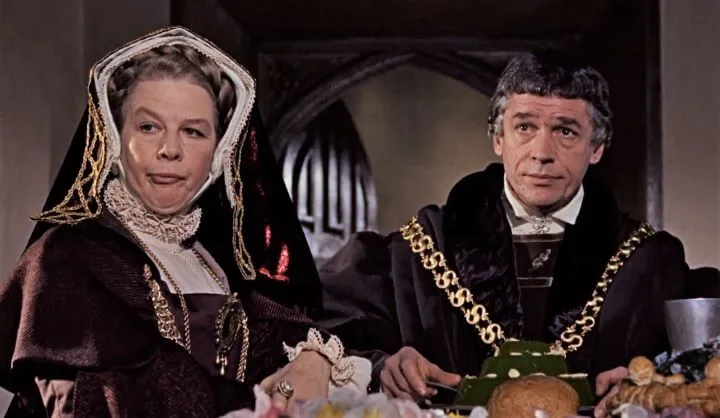
Arch Bishop in England was asked to cut the tie with Rome and declared him as Supreme Head of the Church of England. Anyone who does not take on it would be charged with treason. Instead of taking the oath, Sir Thomas resigned as Chancellor.
After divorcing Catharine he married Mistress Anne Boleyn and expected Thomas to come and bless the marriage during her coronation. Infuriated, the King summoned him to Hampton Court to answer some certain charges brought against him, including one related to taking a bribe from a litigant.
One of the charges of treason brought by Thomas Cromwell, new chancellor, was that he met the Holy Maid of Kent’ who was executed for prophesying against the King. Later he was called to the council to answer his charges of treason and because of his prudent answers, the charges were dropped.
On his way home no boat’s man would agree to carry him and was encountered by his friend the Duke of Norfolk, Howard who implored Sir Thomas to give in regarding his opinion about the divorce.
In Chelsea, Margaret, his daughter, as he reaches home on a stormy night, brought the news about the new act that is already in parliament regarding the divorce and the King’s new title as Supreme Head of the Church of England. The act required an oath about divorce and will be changed with high treason for not doing so.
The next day he was arrested and brought to the Royal Fortress, the Tower of London and provided with some books.
When a statesman forsakes their own private conscience for the sake of their public duties they lead their country by a short route to the chaos.
Sir Thomas More, A Man for All Seasons-1966
Hearing a dog barking he tried to gaze out at the river bank where children are playing and fishing in the beautiful morning. Sir Thomas took the stool and stood on it and had a long gaze at them through the little window. It seemed, he was Looking down there until the next morning and fell asleep afterwards.
As day broke, jailers came and took him to the Richmond Palace to be interrogated by the Duke of Norfolk, the Archbishop and the Chancellor, and his allegiance to the parliamentary Act of Succession. Passed in 1534, the act made Princess Elizabeth, the daughter of Anne Boleyn the successor of the Crown making Mary, daughter of the King by Catherine of Aragon a bastard.
Thomas categorically answered ‘No’ when the board asked his allegiance. They asked whether he recognises Anne Boleyn’s daughter as an heir to the throne. He answered that he recognises them as the queen and an heir to the throne, but won’t swear allegiance to the act.
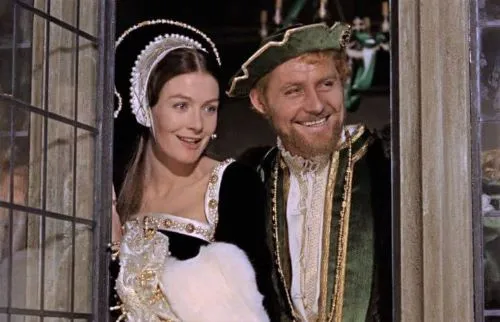
The archbishop wanted to know whether he denies, disputes or is not sure of the fact that the King’s marriage to his brother’s widow is unlawful and the Pope’s having no authority to section it, but Sir Thomas maintained complete silence and did not tell why he does not want to take the oath.
They said if he does not take an oath then it must be reasonable. The conversations follow:
Sir Thomas: Not must be, maybe.
Duke of Norfolk: Awe, it’s a fair assumption!
Sir Thomas: The law requires more than an assumption, the law requires a fact.
Archbishop: Awe, well, of course, I cannot judge your legal standing in the case but until I know the ground of your objections. I can only guess your spiritual standing, too.
Sir Thomas to Archbishop: if you are willing to guess that, your grace, it should be a small matter to guess my objections.
Thomas Cromwell: then you do have an objection to the act?
Duke of Norfolk: Well, know that, Cromwell.
Sir Thomas: No, my lords, you don’t. You may suppose I have an objection, all you know is that I will not swear to it for which you cannot lawfully harm me further. But if you were right in supposing me to have objections, and right again in supposing my objections to be reasonable, the law would let you cut my head off.
Duke of Norfolk: Oh, yes!
Thomas Cromwell: oh, well done Mr Thomas! I have been trying to make that clear to His Grace, for some time.
Duke of Norfolk: why can’t you do as I did, and come with us for a fellowship?
Sir Thomas: When we die you are sent to heaven for doing your conscience and I am sent to hell for not doing mine, will you come with me for fellowship?
Archbishop: So those of us whose names are there are, damned, Sir Thomas? Sir Thomas: I have no window to look into another man’s conscience. I condemn no one. Archbishop: Then the matter is capable of a question?
Sir Thomas: Certainly.
Archbishop: Your obedience to the King is not capable of question. So weigh doubt against certainty and sign.
Sir Thomas: some men think the earth is round, others think it is flat. It is a master capable of questioning. But if it is flat, will the King’s command make it round? And if it is round, will the King’s command flatten it? No, I will not sign.
Thomas Cromwell: Then you have more regards for your own doubt than the King’s command?
Sir Thomas: For myself, I have no doubt.
Thomas Crowell: No doubt of what?
Sir Thomas: No doubt that I will not take the oath. But why I will not, you Master Secretary, will not trick out of me.
Thomas Cromwell: I might get I out of you in other ways.
Sir Thomas: You threaten like a dockside bully.
Thomas Cromwell: How should I threaten you?
Sir Thomas: Like a minister of state, with justice!
Thomas Cromwell: Oh, justice is what you’re threatened with.
Sir Thomas; Then I am not threatened.
The next day Sir Thomas’s daughter Margaret, wife Alice and son-in-law Richard Roper came to the tower to visit him and persuade him to swear allegiance to the act and accept the divorce.
Adamant, he refused to bend to the act of deserting what he believes to be true to his heart even at the very moment when he knows that death is around the corner and depends on his decision.
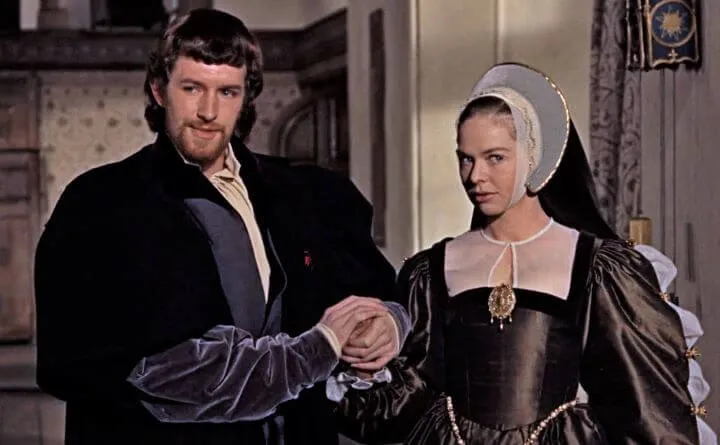
Later after a brief prayer, he enters the court. The jury asked whether he wishes to relinquish his obstinate opinion about the King and be granted mercy. Master Secretary Cromwell read out the charge against him: ‘That you did wilfully and maliciously, deny and deprive our liege, Lord Henry, of his undoubted certain title, Supreme Heath of Church in England”
Before he was about to retire after finding guilty of treason without any legal ground, Sir Thomas asked some time to speak his last wishes. He starts, “Since the court determined to condemn me, God knows how I will now discharge my mind concerning the indictment and the King’s title. The indictment is grounded in an act of parliament that is directly repugnant to the law of God and His Holy Church.”
“The supreme government, of which no temperable person may by any law presume to take upon him. This was granted by the mouth of our Saviour, Christ Himself to Saint Peter and the bishops of Rome while he lived and was personally present here on earth. It is, therefore, insufficient law to charge any Christian to obey it.
And more than this, the immunity of the church is promised in both the Magna Carta and in the King’s own coronation oath. Nevertheless, it is not the Supremacy that you have sought my blood but because I would not bend to the marriage.”
Accordingly, he was sentenced to high treason and taken to the Tower of London and stayed until his execution. The execution took place later and Sir Thomas More’s famous quip, ‘I am commanded by the King to be brief, and since I am the King’s obedience subject brief I will be. I die His Majesty’s good servant but God’s first”.
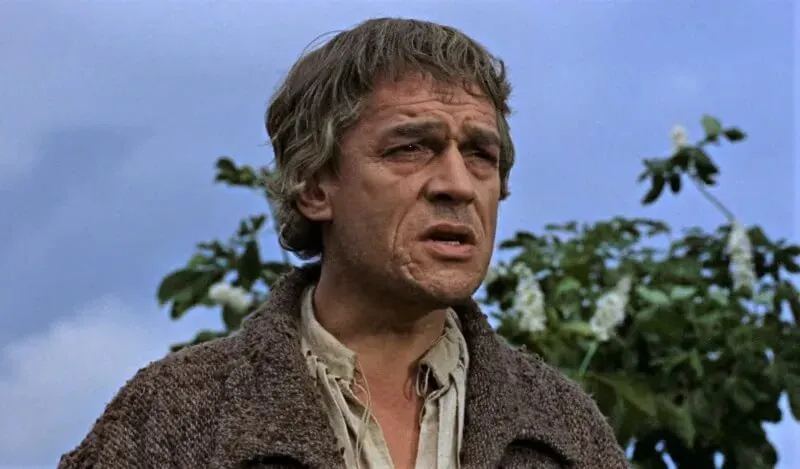
To the executioner, he said, “Be not afraid of your office. You send me to God”. Sir Thomas More’s head was stuck on the Traitor’s Gate for a month. Then his daughter, Margate, removed it and kept it till her death.
Conscience Or Egotism?
King Henry makes it treason to question either his supremacy over the church or the legitimacy of his new marriage. The punishment is death. Bishops, courtiers, and friends, make no difference anyone who opposes him faces death. He would take any resistance to what he was doing, anyone who does is an enemy of his reform and an enemy of God.
On the other hand, what King Henry did by breaking up with allegiance with Rome to annul his marriage with Catherine of Aragon and make Anne Boleyn his queen was contrary to what Sir Thomas More thought just to his conscience. Because of the King’s tyranny followed the Evangelical Reformation mostly by his support for the movement in order to make him the Supreme Head of spiritual decision.
A Man for All Seasons-1966, actually tells us how one honest and powerful voice matters even when it comes to the matter of a King. Thomas More’s unwavering support along with Pope remained with him until his final moment.
A man who meant no harm to anyone, but was a just lawyer and true subject of the King and a sincere humanist who placed his God first on the basis of morality had to die because of what he believed to be true to his conscience. No other conviction, persuasion and love of life could not alter the trajectory of the truth.
Under catholic guidance, the bible is read-only In Latin, but in Henry’s England, everyone would be able to read the Bible. Sir Thomas opposed it strongly.
King Ruled While Lust Rules The King
Together with Master Secretary Thomas Cromwell, Duke of Norfolk Howard and Queen Anne Boleyn the King made an innocent great man a victim of the cruelty of politics and religion.
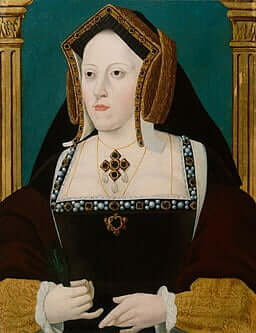
However, the separation from Rome came at a very high price. Monasteries that occupied one-sixth of England became in the hand of the King making him a new landlord. Through the disillusionment, one by one the monasteries of grounded and looted and auctioned off.
Anne Boleyn was the most notorious mistress in English history. By 1529 Henry has been in love with her for three years. She promised to give him that Catharine failed to in 20 years on one condition: If he leaves his wife.
He tried to divorce her many times Catherine refused to step aside as queen. He legally failed to divorce Catharine of Argon in the court and the case would be sent to Pope who is sympathetic to Catherine.
In January 1535 king is badly injured in a jostling accident. And five days after the accident, Anne Boleyn had a miscarriage. But after three years of marriage, Anne was able to bear her a daughter, Elizabeth, but no son and she was losing the king’s favour who was desperate for a male heir to his throne.
As a pretext to get rid of her, with some courtiers, Anne’s brother was caught for adultery with the queen and soon her arrest too followed charging of treason.
Charges against Anne Boleyn were convenient ones for the King was already courting one of her handmaidens, Jane Seymour. On the 19 of May 1536, Anne Boleyn is beheaded for adultery. And King Henry married his new queen one week later, Jane Seymour who died in childbirth in 1937 giving birth to a male heir: Prince Edward. The King is satiated.
Cromwell proposed a diplomatic marriage to a European princess Anne of Cleaves with the King. Cromwell took the risk of marrying the King off, relying on a miniature photograph, to a Princess whom he had never seen.
But the King was deterred by his newlywed bride and Cromwell lost the heir of the monarch. The 25 years old Princess and sister of the Duke of Cleves could not earn the King’s favour and the marriage came to an end without consummation.
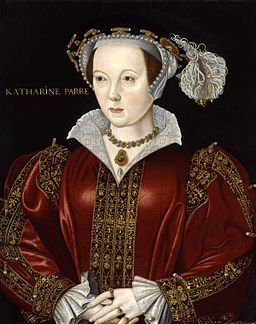
The discovered reason for this was actually the King fell in love with the 17 years old Catherine Howard. During a dance gathering in the court, the Dude of Norfolk Howard played a card against his enemy Cromwell. Duke took full advantage of his rival’s weakness and was planning to place one of his nieces in the royal bed.
Catharine Howard was presented to Henry ‘as pure as the driven snow’. And a divorce procedure to take place to marry Catharine Howard. After 10 years of service, Crowell was ambushed and charged with treason.
On 2oth July 1540, the reformer was executed regardless of his asking for mercy from King. Henry married Catharine Howard on the same day. Cromwell’s downfall came with a portrait of some diplomatic problems.
In 1542, a love letter was found with Queen Catharine Howard and was executed for adultery, unlike Anne Boleyn Catherine was found guilty.
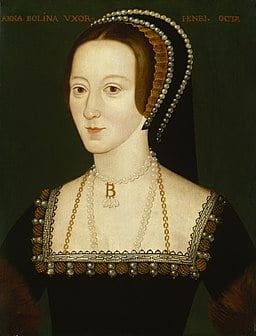
After Henry’s military failure against France in 1545 his health deteriorate and gone back to religious reform. As the Protestant Reformation rocked the empire conflict reached the heart of the palace and thousands were executed on the charge of heresy.
In 1546 a woman came to beg for her to King who became his last Queen Catherine Parr who was accused of heresy for believing in evangelical reformation.
Even though he was groaning with pain and about to die he did not want any rivals to his throne. The king destroyed the Catholic Church in England
Jane Seymour, third wife of King Henry VIII, who died in a child-birth clutches his catholic rosary during the time of his last breath
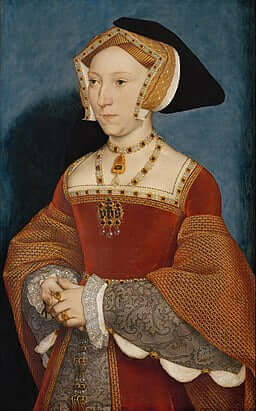
Along with obesity and gout, his other medical conditions were purely related to the jousting accident in 1536 that affected his leg. An incurable ulcerous wound spread through his leg. At the age of 55 in 1547, on January 28 King Henry died in the Palace of Whitehall.
A Man for All Season is not just a film in itself, it is a great picture that focuses on two men’s life while one became a Saint and the other turned villain in the history of England. It is a film that makes someone have a snick pick of the history of some people who had changed the historical landscape of politics and religion
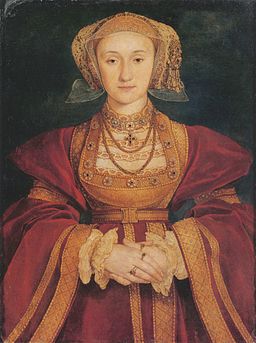
A Man For All Seasons-1966 Quotes:
Sir Thomas: “I think when a statesman forsakes their own private conscience for the sake of their public duties they lead their country by a short route to the chaos”.
Margaret: “No that’s his office, what’s the man?”
When a man rises so high so swiftly that we must think he was misplaced in his origin.
Richmond Richard, A Man for All Seasons-1966
Thomas to Richard: “Am a man should go where he won’t be tempted. Why not teacher, you can be a fine one.”
Sir Thomas to Alice about Margaret’s affair with William Roper: “She is full of education and it’s a delicate commodity”.
King Henry to Sir Thomas about the latter’s moral stand: – “What is more to the purpose you are known to be honest. Those like Norfolk follow me because I wear a crown. Those like master Cromwell follow because they are jackals with sharp teethes, and I am their tiger. And the mass follows me because it follows anything that moves. Respected man, that’s water in the desert.”
Alice to Sir Thomas concerning his resignation as a Chancellor: “Sun and moon, Master More, you are taken for a wise man. Is this wisdom? To betray your ability, abandon your station, and forget your duty to your kith and kin”.
Sir Thomas to Alice: “If they find me silent. They will want to think better to leave me silent”.
Sir Thomas to Margaret: “God made the angels show his splendour, as He made animals for innocence and plants for their simplicity. But men he made to serve him wittily in the tangle of his mind. If he suffers us, to come to such a case that there is no escaping then we may stand to our tackle as best as we can. Then we can clamour like champions if we have the spittle for it. But it is God’s part, not our own, to bring ourselves to such a pass. Our natural business lies in escaping”.
Sir Thomas to the Duke of Norfolk regarding his giving in to the King’s proposal: “I will not give in because of opposing it. Not my pride, not my spleen, nor any other of my appetite, but I do, I. Is there in the midst of all this muscle, no sinew that serves no appetite of Norfolk, but is just Norfolk?”
Sir Thomas to Thomas Cromwell: “You threaten like a dockside bully, you must treat like a minister, with justice”.
Sir Thomas to Margaret in the prison: “Finally, it is not a matter of reason, it’s a matter of love. Listen, Meg, when a man takes an oath, he is holding his own self in his own hands like water. And if he opens his fingers then, he need not hope to find himself again. Some men are not capable of that, and I would be loathed to think your father is one of them.”
Sir Thomas to Margaret in the prison: “When we lived in a state where virtue was profitable, common sense would make us saintly. But since we see that, avarice, anger, pride and stupidity commonly profit far beyond charity, modesty, justice and thought, perhaps we must stand fast a little even at the risk of being heroes”.
Sir Thomas to Richard: “It profits a man nothing to give his soul for the whole world”. It profits a man nothing to give his soul for the whole world.
It profits a man nothing to give his soul for the whole world.
Sir Thomas More, A Man for All Seasons 1966
Conclusion
Many times I just play A Man for All Seasons-1966 playfully, but every time I do it, I have to spend some time with it. When I do that all the characters, morals, beauty of truth and sincerity, the ugliness of power, the power of love, and the power of truth become vivid. In fact, it resonates so vividly that I desire to adhere to a life that Sir Thomas More had been fortunate to obtain.
Like Socrates, Thomas More too had a way to avert his death, not by running away from the truth, but by compromising with the lies, and moral corruption, keeping his conscience apprehended and conditioned and could have left the rest of his life with his wife and probably with many grandchildren.
Again, like Socrates, Thomas More was ever-ready to die for what was true, beautiful, just and bold. He died the death that his conscience conveyed rightfully. A Man for All Seasons can be one of the best films to invest time in.
